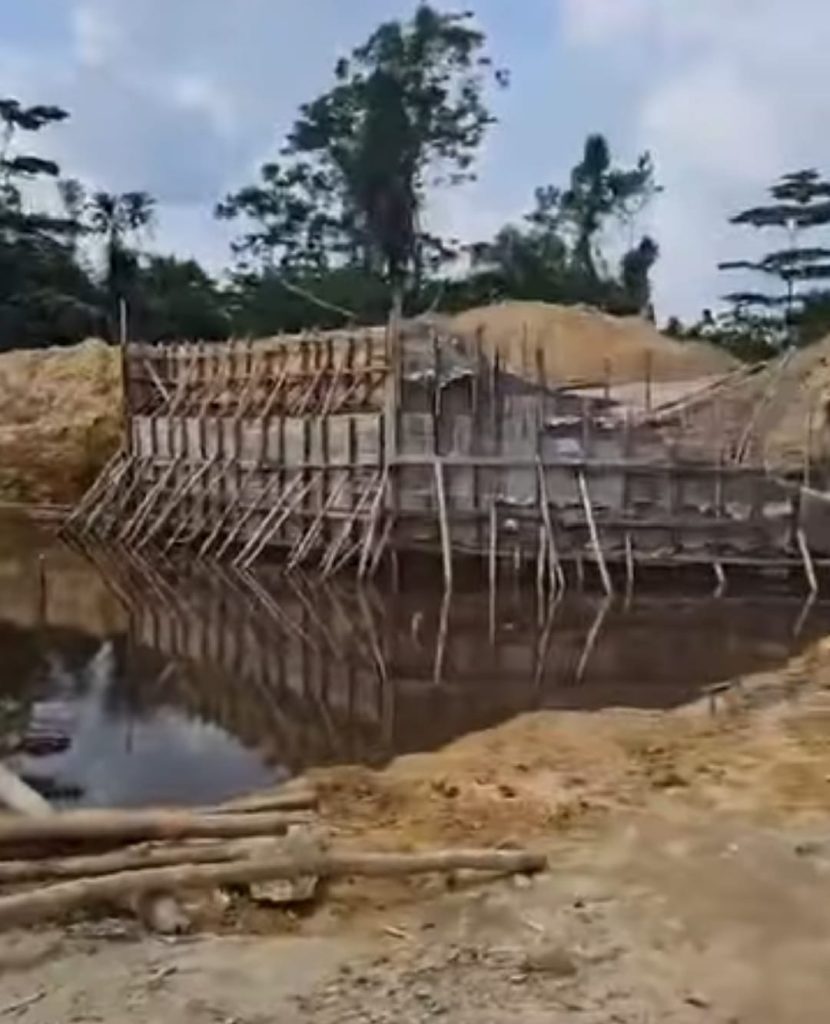The stalled construction of a vital bridge connecting Foequlleh and Mbellequah in Bong County, Liberia, has ignited public outcry and raised concerns about transparency and accountability in public infrastructure projects. Awarded several years ago for an estimated USD 500,000 to a company reportedly owned by Sonnie Yallah, wife of former Senator Henry Yallah, the project has been abandoned, leaving the bridge as a “white elephant” and severely impacting the lives of local residents. The unfinished structure, meant to be a lifeline for hundreds in Zota District, now stands as a symbol of broken promises and neglected development.
Lawrence Anniway, CEO of the Dekaiyeiyah Foundation and a native of the district, has voiced his strong disapproval of the situation, labeling it “unacceptable neglect.” He emphasizes the crucial role the bridge plays in connecting communities and facilitating access to essential services such as trade, education, and healthcare. The delay, he argues, is not merely a construction setback; it represents a direct impediment to the well-being and progress of the people who depend on it. His appeal for immediate government intervention underscores the urgency of the situation and the need for effective solutions.
The plight of the residents of Zota District is compounded by the dangers posed by the unfinished bridge, particularly during the rainy season when crossing the creek becomes perilous. The difficulties in transporting goods and accessing services further exacerbate their hardship. This situation highlights the real-world consequences of stalled development projects and the disproportionate impact they have on vulnerable communities. The unmet promise of the bridge serves as a stark reminder of the gap between government commitments and the lived realities of many Liberians.
The circumstances surrounding the contract award have also fueled suspicion of potential conflict of interest due to Madam Yallah’s connection to a former public official. Although no formal accusations of wrongdoing have been made, civil society groups are demanding a comprehensive audit of the project. This scrutiny aims to shed light on the utilization of funds and the reasons behind the project’s stagnation. The demand for transparency reflects a growing public call for accountability and responsible governance in infrastructure development.
Anniway’s plea to the Bong County Legislative Caucus and the Ministry of Public Works to investigate the delay and ensure the bridge’s completion resonates with the community’s frustration and desire for tangible action. His commitment to advocating for the affected residents underscores the importance of local voices in holding authorities accountable and driving development initiatives. The call for action extends beyond the immediate need for the bridge; it represents a broader appeal for responsible and responsive governance.
This case underscores critical issues within Liberia’s development landscape. It exposes challenges in project monitoring, transparency in contracting processes, and accountability mechanisms involving both public and private entities. As infrastructure development remains a cornerstone of the nation’s decentralization and rural upliftment agenda, the Foequlleh–Mbellequah bridge serves as a cautionary tale. It emphasizes the urgent need for robust oversight and transparent procedures to ensure that development projects translate into tangible benefits for the communities they are intended to serve. The bridge, in its unfinished state, stands as a stark reminder of the consequences of neglecting oversight and the importance of holding those responsible accountable.














